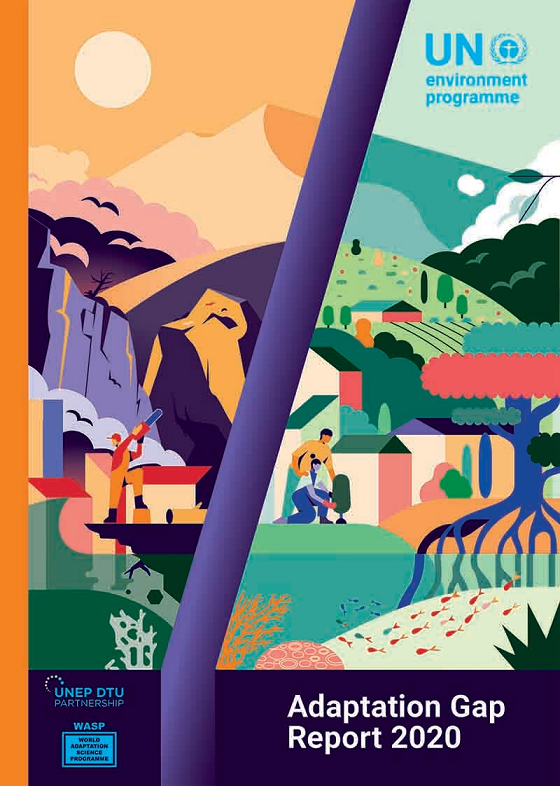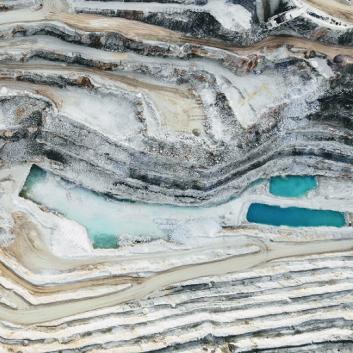Green pandemic recovery requires better finance of adaptation plans
As climate change impacts intensify and temperatures continue to rise, nations need to urgently act to adapt to the new climate reality.
Otherwise, they will face severe costs, damages and losses, the new Adaptation Gap 2020 report by UN Environmental Programme (UNEP) finds.
The recently published report discovers that whilst nations have advanced in planning, huge gaps remain in finance for developing countries and delivering adaptation projects to the stage whereby they get real protection against climate impacts such as floods, droughts and sea-level rise.
Findings suggest that private and public finance for adaptation must be stepped up urgently, along with faster implementation.
Inger Andersen, Executive Director at UNEP said:
“The hard truth is that climate change is upon us.
Its impacts will intensify and hit vulnerable countries and communities the hardest – even if we meet the Paris Agreement goals of holding global warming this century to well below 2°C and pursuing 1.5°C.

As the UN Secretary-General has said, we need a global commitment to put half of all global climate finance towards adaptation in the next year.
This will allow a huge step in adaptation – in everything from early warning systems to resilient water resources to nature-based solutions.”
The report states that nature-based solutions - locally appropriate actions that address societal challenges, such as climate change, and provide biodiversity and human-wellbeing benefits by protecting, sustainably managing and restoring modified or natural ecosystems - must become a priority.
Nature-based solutions for adaptation can be low-cost options that are potentially effective in reducing climate risks, while simultaneously bringing important additional benefits for the environment, economy, livelihoods and other values to a wide range of stakeholders, including the poor, women and other marginalised groups.
The recognition that nature-based solutions can make crucial contributions to climate change adaptation is both nationally and internationally. However, there are few concrete plans.

The most encouraging finding of the report is that 72 per cent of countries have adopted a minimum of one national-level adaptation planning instrument.
Although, the drawback is the finance needed to implement these plans, is not growing fast enough.
While the pace of adaptation funding is rising, it continues to be outpaced by the rapidly increasing adaptation costs.
Annual adaptation costs in developing countries are estimated at around $70 billion, and this figure is expected to reach 140-300 billion in 2030 and 280-500 billion in 2050.
The Adaptation Gap Report 2020 emphasises that cutting greenhouse gas emissions will reduce the impacts and the costs associated with climate change.
An analysis of four major climate and development funds – the Global Environmental Facility, the Green Climate Fund, the Adaptation Fund and the International Climate Initiative – suggested that support for green initiatives with some element of nature-based solutions has increased over the last two decades.
Cumulative investment for climate change mitigation and adaptation projects under the four funds remained at $94 billion.
However, just $12 billion was spent on nature-based solutions – a rather small fraction of total adaptation and conservation finance.
In most cases, this necessitates planning and coordination across national or jurisdictional boundaries, creating both a challenge and an opportunity for environmental policy frameworks and transboundary negotiations.
Of over 1,700 adaptation initiatives surveyed, just 3 per cent had already reported real reductions to climate risks posed to the communities where the projects were being carried out.
New tools such as sustainability investment criteria, climate-related disclosure principles and mainstreaming of climate risks into investment decisions can stimulate investments in climate resilience.
The report urges all nations to pursue the efforts outlined, which call for green pandemic recovery and updated Nationally Determined Contributions that include new net-zero commitments.
Adaption – reducing communities’ and countries’ vulnerability to climate change by improving their ability to absorb impacts – is a key pillar of the Paris Agreement on Climate Change.
The agreement requires its signatories to implement adaption measures through national plans, climate information systems, early warning, protective measures and investments in a green future.
The world must plan for, finance and implement climate change adaptation to support those nations least responsible for climate change but most at risk.
While the COVID-19 pandemic is predicted to hit countries' ability to adapt to climate change, investing in adaptation is still a sound economic decision.
Headline photo by Aleksandar Pasaric from Pexels
















